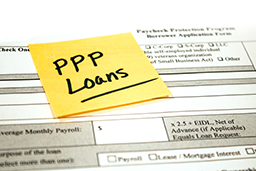As if the COVID-19 pandemic and its impact on small businesses have not been enough of a stressor and burden, these entities could face potential liability under the False Claims Act to the extent they have obtained Paycheck Protection Program (PPP) loans. That is right, it is possible that such liability will attach by virtue of the good faith certifications PPP borrowers were required to make to receive federal funding. Michelman & Robinson explains.
The False Claims Act (FCA)
The FCA, intended to combat fraud on the U.S. Government by subjecting wrongdoers to civil liability, was a popular tool in response to scheming in the wake of the 2008 financial crisis. The law is expected to make a resurgence in the aftermath of the PPP.
Indeed, a PPP borrower may end up on the wrong side of an FCA action if it: (1) knowingly presented a false claim for payment to the U.S. Government; (2) knowingly made or used a false record or statement material to such a false claim; (3) knowingly concealed, avoided, or decreased, or made a false statement material to, an “obligation” to the U.S.; or (4) conspired to commit a violation of the FCA. Of note, no specific intent to defraud is required to trigger an FCA action, though negligence is not enough, and the person or entity under scrutiny must have actual knowledge, be deliberately ignorant, or recklessly disregard the truth or falsity of information provided in furtherance of the PPP loan in question.
Running afoul of the FCA can be very costly. Remedies under the statute include (1) treble actual damages (yet damages are not required to prove liability), (2) attorneys’ fees and costs, and (3) civil penalties of between $11,665 and $23,331 per claim—this in addition to the chance that participation in the PPP may be terminated, applicable licenses could be revoked, and the individual or entity involved might be liable for the costs of responding to the FCA action.
It gets even riskier for would-be PPP fraudsters: private citizens (coined “Realtors”) may file whistleblower or qui tam actions on behalf of the U.S. and pursue FCA claims without direct Department of Justice involvement. As incentive, Realtors are protected from retaliation under the FCA and entitled to between 15 and 30 percent of amounts recovered. Likewise, the shadow of an FCA action can linger—the statute of limitations is up to 10 years from the violation.
PPP Loan Certifications That Could Prompt an FCA Action
When applying for PPP loans, borrowers had to certify in good faith that (1) “current economic uncertainty” made their loans “necessary to support ongoing operations”; (2) the funds were only to be “used to retain workers and maintain payroll or make mortgage interest payments, lease payments, and utility payments”; and (3) they had not taken out any other PPP loans. The certifications do not stop there—additional ones must be made when seeking loan forgiveness.
To complicate matters, the Small Business Administration, in tandem with the U.S. Department of Treasury, issued subsequent guidance (in the form of FAQs and Interim Final Rules) that served to modify the borrower certifications, narrow the scope of eligibility for PPP loans and loan forgiveness, and restrict what the PPP proceeds could be used for. More specifically, the SBA and Treasury (1) imposed certain restrictions on small businesses having liquidity elsewhere (a provision that was specifically waived in the CARES Act); (2) made clear that borrowers must be able to show that their loans were necessary; and (3) implied that a thorough assessment as to economic need would be required.
What is clear is that the PPP certification mandate is comprehensive, and any borrower that has falsified them, knowingly or otherwise, could face an FCA action.
FCA Enforcement
When it comes to COVID-19 related enforcement of the FCA, the U.S. Government has its proverbial ducks in a row. Attorney General William Barr has authorized a Special Investigator General for Pandemic Recovery, the Comptroller General Gene Dodaro has been given authority to monitor and audit the use of funds disbursed under the CARES Act, and the FBI may be mobilized to oversee related investigations. Further, Congress has created an Oversight Commission along with a Pandemic Response Accountability Committee.
That being said, FCA enforcement actions may be brought by the DOJ or Realtors against small businesses that (1) make fraudulent statements in PPP loan and/or loan forgiveness applications (including falsifying supporting documents or, more importantly, certifications); (2) misrepresent the number of individuals they employ and/or payroll expenses; or (3) use PPP funds for non-approved purposes.
Avoiding FCA Liability
While not an exhaustive list, some best practices to avoid liability under the FCA include:
- Documenting all communications with the SBA or other federal agencies as they relate to PPP eligibility and, if applicable, FCA compliance
- Maintaining separate documentation relative to PPP proceeds and the purpose for which these funds are spent, keeping funds from other business accounts segregated, if possible
- Staying up-to-date on COVID-19 legislation and related guidance and updates
- Observing corporate formalities and accounting protocols, especially regarding the use of federal funds and implementation of compliance programs
- Regularly communicating with your bank/lender and legal counsel regarding FCA compliance
As always, M&R is prepared to provide advice and counsel concerning any of your COVID-19-related legal needs, including the FCA and PPP. Do not hesitate to contact us to learn more about our COVID-19 Practice Group.
This blog post is not offered, and should not be relied on, as legal advice. You should consult an attorney for advice in specific situations.

